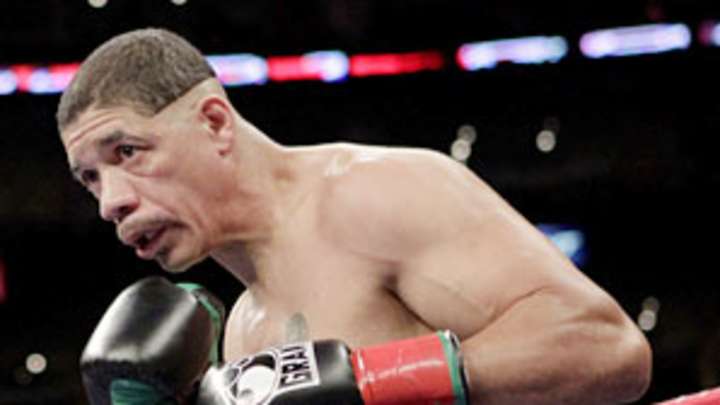My Sportsman: Dewey Bozella

It stares out from the record books unremarkably, like so many of the more than 15,000 professional boxing matches that took place in 2011:
Dewey Bozella W UD 4 Larry Hopkins
But the above bout, held last Oct. 15 at the Staples Center in Los Angeles, went well beyond the usual undercard tussles with purses in the low four figures. In fact, the unlikely pro boxing debut of 52-year-old Dewey Bozilla was nothing short of extraordinary.
Bozella was a teenager when he turned to boxing as an escape from a horrific family life that bottomed out when he witnessed his father beat his pregnant mother to death. He spent his adolescence in and out of foster care, but that was nothing compared to the heinous miscarriage of justice that condemned him to more than half his life at Sing Sing Correctional Facility in Ossining, N.Y.
Wrongfully imprisoned in 1983 for the murder of 92-year-old Emma Crasper -- he was convicted on the false testimony of two known criminals who cooperated with prosecutors in exchange for their freedom -- Bozella was handed a life sentence and spent 26 behind bars. Rather than curse his fate, Bozella was driven relentlessly by the spirit of achievement. One of his few keepsakes was an article on Bernard Hopkins, the convicted felon turned middleweight champion.
"There was a picture of him holding onto the prison bars with a pair of boxing gloves," Bozella told SI.com in Philadelphia in the days before his first pro fight. "He boxed his way not only from out of prison but to become a living legend. That said everything to me."
While at Sing Sing, Bozella earned a bachelor's degree in general studies from Mercy College and a master's from the New York Theological Seminary. He became the jailhouse light heavyweight champion and nearly defeated future world champion Lou Del Valle, who later became the first man to knock down Roy Jones Jr., when the then-Golden Gloves champ visited the prison for an exhibition. Bozella even met his future wife, Trena Boone, while she was there to visit her inmate brother.
Bozella's case was retried in 1990 after he contested the jury selection of his previous trial. He was offered a plea deal by prosecutors that would have set him free in exchange for an admission that he committed the crime. He turned it down, refusing to negotiate a release based on saying he was guilty. Ultimately, with the aid of New York City law firm of Wilmer Cutler Pickering Hale and Dorr, who took on his case pro bono, Bozella was exonerated in 2009.
Though he'd used boxing as a spiritual touchstone while inside prison, Bozella had long given up his dream of fighting professionally. But when Golden Boy Promotions contacted him about making his pro debut on the undercard of a Hopkins fight -- the same fighter whose story gave Bozella inspiration in his darkest hours -- he accepted the challenge.
"There's a certain energy and drive in some people that a lot of us will never understand," Hopkins said. "What Dewey did is beyond anything that I've done in the ring, beyond anything I accomplished outside the ring in my personal life."
Before he could get into the ring, though, Bozella had to be licensed by the California State Athletic Commission. It wasn't easy. Longtime Hopkins aide Danny Davis, who headed Bozella's training, put him through the paces. On fight night, Bozella overcame a sluggish start to dominate the fourth and final round, knocking Larry Hopkins' mouthpiece free with a left hand and leaving him splayed along the ropes with right cross as the final bell sounded. When the judges' scores were read, Bozella's arm was raised.
Having "done what I needed to do," Bozella declared that his first fight would also be his last. His next mission is to generate enough revenue through the newly established Dewey Bozella Foundation to open a gym in Newburgh, N.Y., where he can use boxing to help keep youth off the streets.
No athlete in 2011 more embodied the spirit of achievement than Bozella, whose indomitable will earns my vote for Sportsman of the Year.
